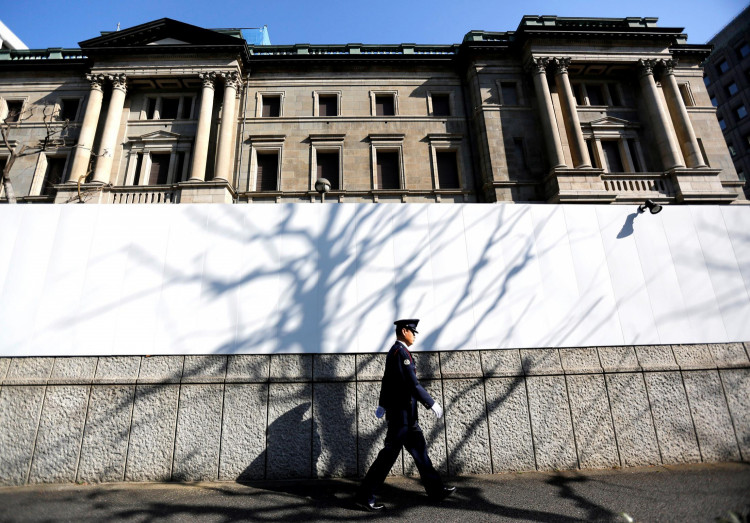As the Bank of Japan's crucial interest rate decision approaches, the market is once again swirling with speculation.
Last Friday, a Bloomberg report suggesting the Bank of Japan is unlikely to adjust its Yield Curve Control (YCC) policy this time triggered market turbulence. The yen plummeted, and Japanese stocks swiftly climbed.
In a Bloomberg survey, 82% of economists predict that the bank won't change policy at this meeting, while around 18% believe the bank may tweak or eliminate its control over the yield curve.
Earlier, sources interviewed by Reuters said that the Bank of Japan is inclined to maintain its YCC policy unchanged, suggesting the bank is in a position to wait until global economic stability is clear, which could give Japanese businesses a chance to boost profits and improve wage prospects.
Despite inflation remaining well above the central bank's 2% target, some investors still believe the Bank of Japan could change its stance on the YCC policy. The most opportune moment to do this might be at the July Monetary Policy Meeting.
Masafumi Yamamoto, Chief FX Strategist at Mizuho Securities, indicated that some investors have started to sell bonds or buy yen, given the risk of the Bank of Japan changing its stance due to an upward revision of inflation forecasts.
The yen hit a seven-and-a-half-month low of around 145 against the U.S. dollar at the end of June, but has made a comeback in the past few weeks, rising to levels near 137.
Additionally, the yield on 10-year Japanese government bonds rose to 0.485%, approaching the central bank's 0.5% cap.
Some investors believe it's time to adjust policy, as there are signs that changes in Japanese corporate behavior are supporting prices.
This year, major corporations have proposed an average wage increase of 3.58% during annual salary negotiations, the highest rise in thirty years. Excluding volatile fresh food items, the Consumer Price Index (CPI) has remained above the Bank of Japan's target for over a year.
The Japanese government has also raised its inflation forecast, predicting prices, including energy and fresh food, will rise by 2.6% in the 2023 fiscal year, not the previously estimated 1.7%.
This perspective has gained the support of some high-ranking Japanese government officials.
Masato Kanda, Japan's top monetary official, stated on Monday that recent inflation and wage increases have exceeded expectations, indicating that companies are changing their practices based on the assumption that prices won't rise significantly. Kanda told media that the bank might revise inflation expectations upward this time, but said he couldn't comment on specific monetary policy.
In this market tug-of-war, those betting on an adjustment to the YCC are primarily local traders rather than less-informed foreigners. This marks a reversal from last year and earlier this year when overseas voices often suggested that the Bank of Japan should modify the YCC, while local traders remained calm.
Indeed, this round of reporting on the Bank of Japan has been particularly chaotic. On Friday, both Reuters and Bloomberg published articles titled "Bank of Japan currently doesn't need to change YCC," while a report from Japan's Yomiuri Shimbun with similar content bore the headline "Bank of Japan to Discuss Modifying YCC." This demonstrates the divergent emphasis of different media outlets despite the similar content.
The Bank of Japan has long emphasized the need for strong wage growth to achieve stable 2% inflation. This cautious approach stems from Japan's decades-long battle with deflation, with the bank fearing premature tightening of monetary policy could stifle hard-won progress.
Makoto Sengoku, a senior stock market analyst at Tokai Tokyo Research Institute, noted that while the probability of a July adjustment has "rapidly declined," an adjustment later this year based on the yen's performance can't be ruled out. This could put upward pressure on prices due to rising import costs.
While Sengoku doesn't think the YCC will be scrapped, he pointed out that Bank of Japan Governor Haruhiko Kuroda has previously said that changes to the long-term interest rate target could occur at any time.






